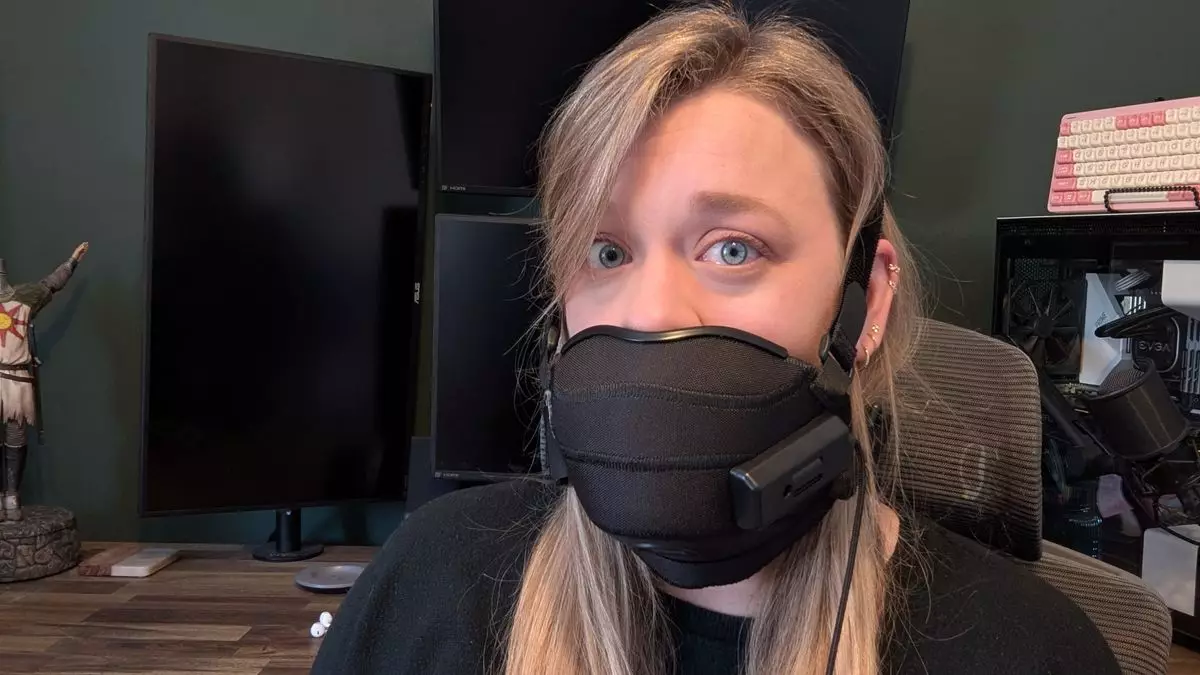Gaming culture has evolved into a sophisticated realm where competitive spirits clash, often showcasing heightened emotions. Whether it’s a triumphant victory or a soul-crushing defeat, gamers use their voices to express an array of sentiments. However, not everyone appreciates the relentless symphony of yells and exclamations that can accompany an intense gaming session. In this context, the Metadox Ombra soundproof mask enters the scene—a product that promises to muffle the chaos for the benefit of those living with gamers. While some may view it merely as a quirky novelty, its implications for everyday life, comfort, and usability merit a more profound exploration.
The rise of multi-person households or shared living arrangements can lead to conflicts in noise tolerance. Enter the Metadox Ombra: marketed as a solution for the vocally exuberant gamer, it seeks to soften the auditory landscape. Priced at $139, its purported ability to significantly reduce sound levels is enticing for those who share a space with dedicated gamers. While the intention behind the design is commendable, it opens a conversation about practicality.
The Ombra mask is designed to attenuate sound, claiming reductions of between 10-15dB for low frequencies and upwards of 20dB for mid-range noises. Upon casual use, it seems to deliver on these promises; however, potential users must weigh whether such acoustic dampening is worth the investment both financially and in daily execution.
Design and Usability: Between Comfort and Clarity
First impressions matter, and the tangible experience with the Ombra mask tells a story of contradiction. Although the features—like a magnetically-secured microphone and soft straps—appear user-friendly and promising, the mask’s heft quickly begs a question about comfort. Unlike lightweight medical masks, the Ombra carries a weighty feel. The user’s ability to endure it stretches thin after a few hours, with distinct complaints of discomfort that arise from the mask’s fit and materials.
Furthermore, the design flaw in creating a ‘breathable’ area separate from the mouth area leads users to exhale into padded surrounds, causing condensation and pressure. Such physical challenges compound the mask’s impracticality, particularly during marathon gaming sessions. After a few hours, players may find themselves more focused on the discomfort of the mask than the game at hand.
While the Ombra fulfills its role of reducing external sounds, it introduces nagging quality issues. In a Discord voice channel, the sound from a user wearing the mask can be likened to ambient noise—hallowed and distorted. Despite Metadox’s efforts to provide an adequate microphone, the audio quality diminishes when the mic is encased within the mask. Such a setup raises significant concerns for communication, especially in team-based environments where clarity often influences game dynamics.
Interestingly, Metadox does offer a tutorial for users to adjust microphone settings in an effort to improve sound quality, which poses questions about the mask’s overall design intentions. If the product acknowledges limitations, should consumers invest in a solution that requires excessive troubleshooting? It is crucial for gamers to navigate these audio intricacies effectively, especially when battling against real-time opponents.
Risking the embarrassing label of a “gamer with a cone of shame,” one must ponder who the Metadox Ombra genuinely serves. For individuals living alone, it’s difficult to justify the mask’s existence given the inherent benefits of unfettered vocal expression. Conversely, for those residing with others—partners, roommates, or families—its prospective utility lessens. A mask that merely mutes a portion of the noise doesn’t necessarily provide a seamless solution to a shared living arrangement.
Moreover, the timing in which the mask excels appears misaligned with the occasions when gamers most desire quiet. Most will find that the mask is ineffective during social gaming and late-night sessions, which commonly involve indulging in snacks and drinks alongside interactive dialogue. This brings potential users back to square one: quick fixes tantalizing in theory often fall short in real-world applications.
The Metadox Ombra soundproof mask raises various inquiries regarding the intersection of gaming culture and shared living environments. While its sound-dampening promises present an ingenious concept, the realities of comfort, sound quality, and practical application offer a contrasting narrative. Ultimately, for the serious gamer considering the Ombra’s purchase, they would do well to reflect on their lifestyle. Will the muffled screams—from tactical calls to joyous exclamations—be more of a benefit or a hindrance when paired with the mask’s cumbersome presence? In a world where every decibel counts, it seems the answer remains unclear.

